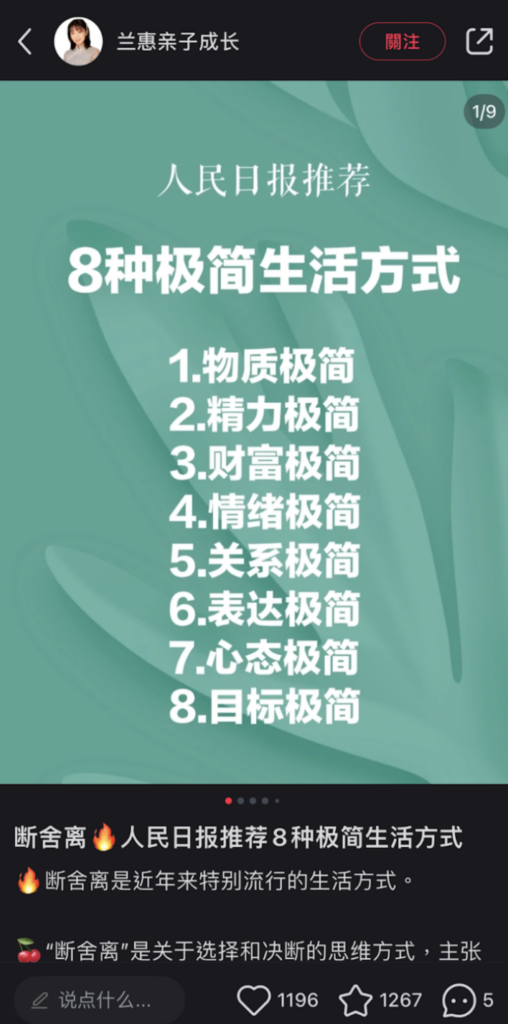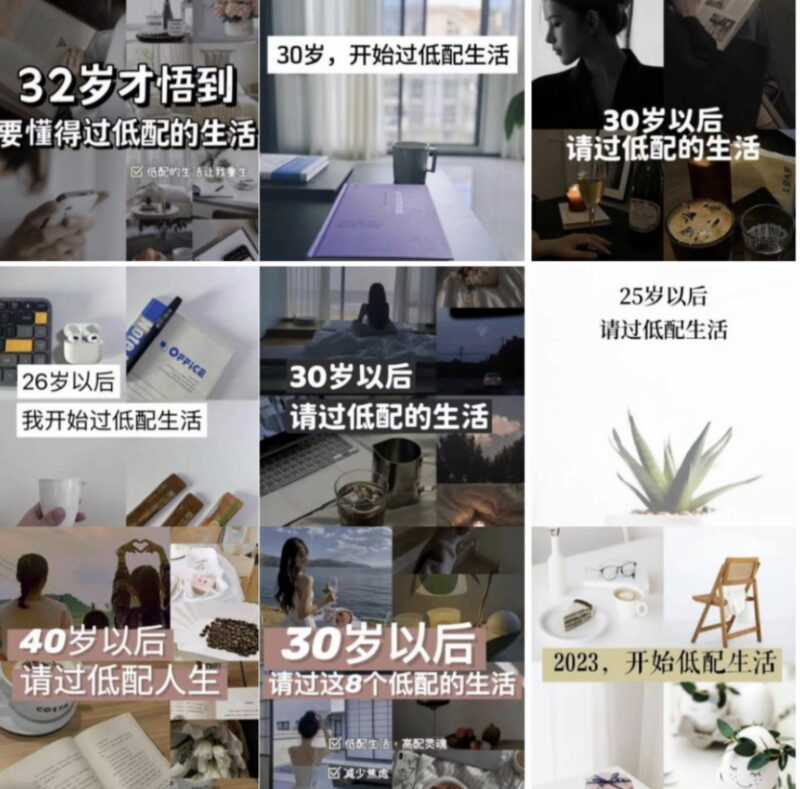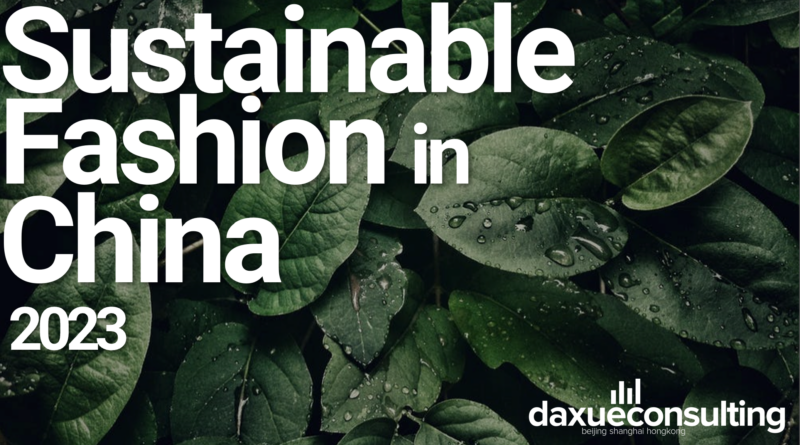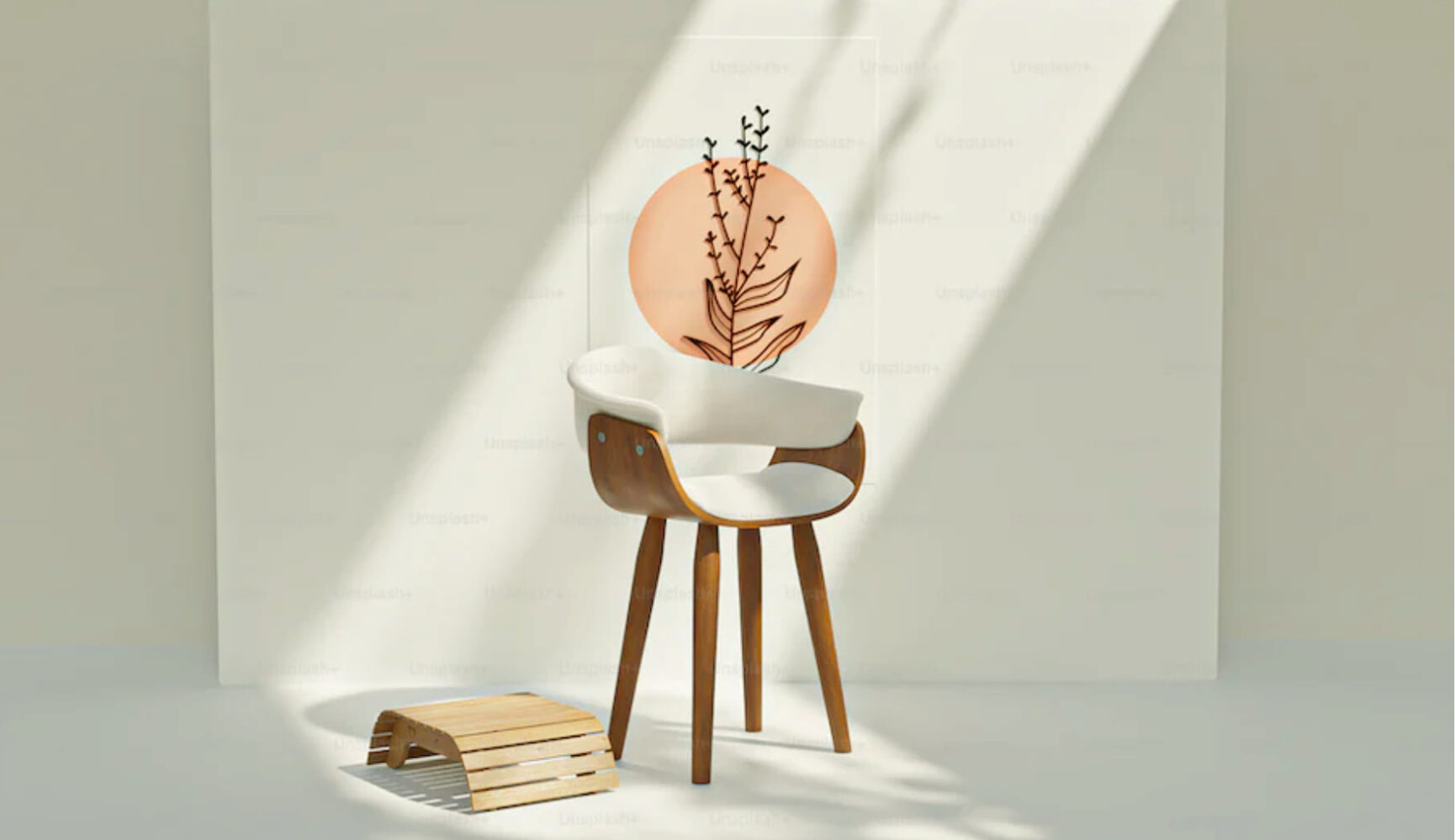Minimalism has become a prominent trend in fashion and lifestyle campaigns, especially in China. People are increasingly embracing a clutter-free existence and being mindful of their shopping habits. This minimalist lifestyle has a positive impact on personal well-being, with decluttering being a significant factor, according to a study of current trends in China.
The minimalist trend in China emphasizes a focus on materials, quality, and simplicity. Natural materials, symbolizing a return to nature and promoting well-being, are gaining popularity. Moreover, the use of environmentally friendly and recyclable materials has become significant due to new recycling regulations in major cities. Consumers seek practicality and functionality, valuing products and experiences that simplify and optimize their lives. Brands like MUJI and Apple, which emphasize these qualities, resonate strongly with young Chinese consumers.

The visual poster designed by Kenya Hara for MUJI, although it’s from many years ago, still doesn’t feel outdated when viewed now. The emphasis on decluttering, unique experiences, and a return to simplicity has had a profound impact on the way brands market their products and engage with customers.
The evolution of China’s Minimalism: past influences and motivations
Minimalism has become a familiar term, and people often hear about it in various contexts. It seems to have become a way of life for many individuals.
“Minimalism” is an art movement that emerged in the 1960s, shortly after World War II, also known as “Minimal Art.” It initially gained popularity in the fields of painting and sculpture. By the 1980s, it gradually expanded into architecture and other industries, becoming increasingly sought after.
The resistance against the rampant desire for material goods in the commodity-driven economic environment is a major reason why people embrace the minimalist lifestyle. At the beginning of this century, a similar cultural movement called “Danshari” quietly emerged in Japan, which shares similarities with “minimalism.” Nowadays, an increasing number of Chinese youth, especially some elite groups, are beginning to embrace and accept the changes brought about by minimalist living.
An investigation conducted by the Ban Yue Tan journalist found that there are more and more young people in China who advocate for a simple lifestyle in online communities such as Baidu, Douban, and Tianya. The members of the “Minimalist Living” groups on Douban Community alone exceed 40,000 people. Topics such as “72 Concepts of Simple Living” are highly popular in Baidu.
Why do these young people pursue a minimalist lifestyle?
Young people pursuing a minimalist lifestyle do so for various compelling reasons. Firstly, a growing realization that material possessions and overconsumption do not necessarily lead to genuine happiness and fulfillment drives them to seek simplicity and meaning in their lives. By prioritizing experiences, personal growth, and relationships over material accumulation, minimalism enables them to find greater contentment and satisfaction. During the COVID pandemic, more young people embraced minimalism as they began to spend more time at home and developed better organizational and self-discipline skills.
Secondly, the younger generation is increasingly environmentally conscious and concerned about the planet’s well-being. Though not everyone practices such a way of living, there is a growing trend for people to embrace both minimalism and sustainability, which are all about living with less. Minimalism’s focus on waste reduction, recycling, and eco-friendly choices aligns with their values of environmental responsibility and conservation.
Minimalism’s impact on young people goes beyond mere aesthetics as it emphasizes decluttering physical spaces, leading to positive effects on their mental well-being. By letting go of unnecessary possessions, they experience a newfound sense of calm, focus, and clarity, fostering a healthier and more balanced mindset. Growing demand for mindfulness and mental health after Covid-19 has accelerated this trend as well.
Additionally, for some young individuals, embracing minimalism becomes an act of rebellion against societal pressures that glorify consumerism and materialism. Defining their own success and happiness on their terms, independent of external expectations, they find freedom and authenticity in the minimalist lifestyle. The convergence of fashion expression, idol worship, financial considerations, and profound personal motivations illustrates the multi-faceted nature of the minimalist movement among young people, reflecting a conscious shift towards purposeful and sustainable living, with profound implications for individuals and society at large.
China’s Minimalism: embracing clean fashion and sustainable trends
Influenced by the concept of minimalism, fashion trends are seeing a rise in bloggers creating posts on Xiaohongshu promoting clean, simple, and even sustainable fashion wear. According to data from Xiaohongshu, there has been a 46% year-on-year increase in posts featuring “basic outfits,” and a staggering 838% year-on-year increase in “flea market” posts. Sustainable fashion is also emerging as another significant trend in this context. In addition, posts related to men’s outfits have increased 91.53% in the last 6 months compared to the previous 6 months, with ”high class fashion” and “clean look” among the most popular types of content.
Within the realm of fashion, minimalism stands out as a style that exudes simplicity and restraint. It is particularly well-suited for men who prefer a straightforward and uncomplicated approach to dressing. This simple aesthetic emphasizes clean colors, simple attire, and uncomplicated combinations, resulting in an ethereal and contented aura that exudes a sense of detachment.

In line with this trend, brands in Asia are adapting their strategies to cater to the minimalist preferences of consumers, meaning the stores emphasize the experience of the customers rather than selling products. Gentle Monster, a Korean eyewear brand, focuses on creating unique experiences of the customers. Their stores resemble art galleries, with striking interiors and massive art installations, while eyewear becomes a byproduct of the store visit. Similarly, JNBY, a fashion brand, encourages individuals to be their authentic selves and find beauty in everyday life through minimalist aesthetics that blend Eastern and Western influences.
Promoting China’s Minimalism in lifestyle campaigns
Minimalism is not just limited to architecture or fashion, it is also a lifestyle or ideology that is worth sharing, including emotional Minimalism, relationship minimalism, expression minimalism and objective minimalism. The term “断舍离” (duansheli), which gained popularity years ago, represented the growing movement towards simplified living. It signaled a shift in mindset towards decluttering, letting go of unnecessary possessions, and embracing a more minimalist lifestyle. However, the unexpected outbreak of the pandemic and the subsequent economic downturn have had a profound impact on consumer behavior, accelerating the transformation towards minimalism.
In this new landscape, young people are finding it increasingly challenging to engage in impulsive consumption. The uncertainties brought by the pandemic and the awareness of economic instability have led them to reevaluate their spending habits. As a result, the concept of “rational consumption” has emerged as a more relatable and practical way to approach minimalism. Instead of mindless shopping and accumulating possessions, young consumers are now prioritizing thoughtful and intentional choices. They seek value, quality, and longevity in the products they purchase, aiming for a more sustainable and fulfilling lifestyle.
Platforms like Xiaohongshu have become influential in shaping the mindset and purchasing decisions of young consumers. They provide a space for sharing experiences, recommendations, and insights on rational consumption. There are some Bilibili content creators that share the concept of minimalism as well. Through these platforms, young people can discover sustainable and ethically produced products, learn about mindful consumption practices, and connect with a community that shares similar values. As a result, the concept of rational consumption has gained traction, empowering young individuals to make informed choices and align their lifestyles with their values of simplicity, sustainability, and mindful living.


Xiaohongshu, Low profile life and low materialistic-desire life promotion posts
China’s Minimalist movement reshaping fashion, lifestyles, and minds
- Minimalism is a prominent trend in China’s fashion and lifestyle campaigns, driven by a desire for simplicity and mindful consumption.
- Young people pursue minimalism for personal fulfillment, environmental consciousness, and to achieve mental clarity through decluttering.
- The pandemic has accelerated the adoption of minimalism, leading to a shift towards rational consumption and sustainable living.
- Various platforms like Xiaohongshu have such lifestyle campaigns to show self-regulation and the benefits of decluttering.
Read our report about sustainable fashion in China





